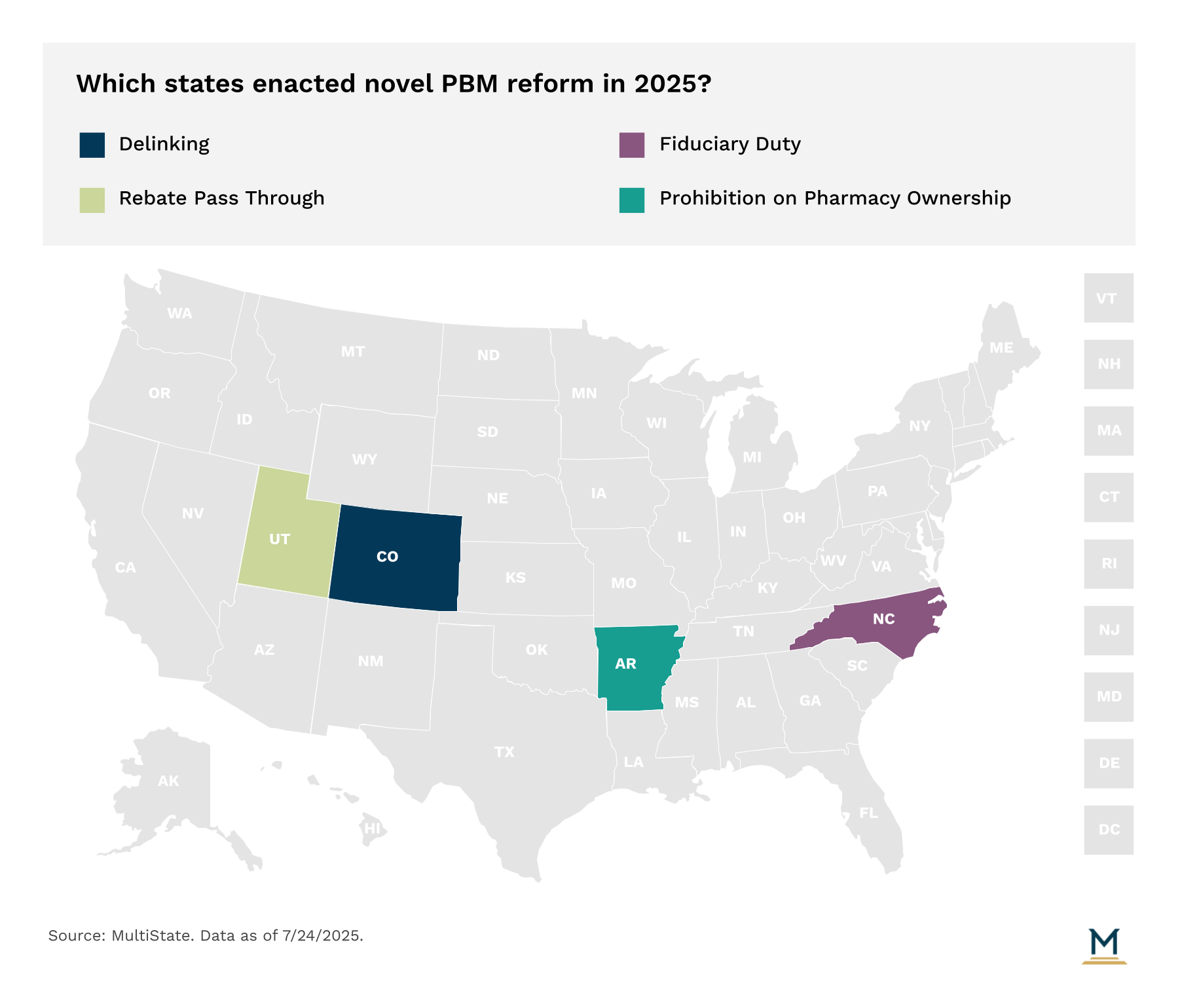Pharmacy Benefit Manager Reform: How States Are Changing PBM Operations
For several years, states have been actively curbing the operations of pharmacy benefit managers (PBMs). Legislators have pursued various approaches to PBM reform, including prohibiting gag clauses in pharmacy contracts and imposing numerous reporting obligations. The latest reform strategies are extensive, focusing on rebate pass-throughs, delinking, fiduciary duty, and pharmacy ownership.
Types of PBM Reform Legislation
Delinking
Instead of basing PBM compensation on rebates and discounts negotiated with drug manufacturers or the list prices of drugs, delinking would mandate that PBMs receive flat, fixed fees for their services. This price structure would “delink” the price of the drugs from the PBMs’ profit, thus removing incentives for PBMs to charge higher prices for prescriptions. Colorado is the only state that has adopted such a reform. It takes effect January 1, 2027.
Rebate Pass-Through
Manufacturers offer rebates for the purchase of their pharmaceuticals, but it can get a little complicated when the end user of the product did not purchase it directly from the manufacturer. PBMs earn millions of dollars by keeping the rebates on drugs they get from the manufacturer. Utah adopted a bill that requires health insurers to make sure their PBMs either pass the rebate on to the consumer at the point of sale, use the rebates to reduce premiums of the enrollee, or increase benefits for the enrollee.
Fiduciary Duty
Fiduciary duty is a relatively new concept to the world of PBMs. These bills ensure that the PBM acts as the health carrier’s agent and owes a fiduciary duty to the carrier with relation to prescription drug benefits. Prior to this year, only two states (Maine and Vermont) mandated that PBMs owe a fiduciary duty to the health carrier. North Carolina’s major PBMs reform bill added this provision to PBM requirements this year.
Prohibition on Pharmacy Ownership
This year, the most significant news in pharmacy benefit manager (PBM) reform is Arkansas's new law prohibiting PBMs from owning pharmacies. While similar measures in Indiana and Louisiana were ultimately removed from their respective bills, Arkansas's prohibition was enacted. However, the law has not yet taken effect due to immediate legal challenges.
Track Health Care Policy
The ever-evolving state health policy landscape will continue to influence how health care organizations make business decisions. MultiState's team pulls from decades of expertise to help you effectively navigate and engage. MultiState's team understands the issues, knows the key players and organizations, and we harness that expertise to help our clients effectively navigate and engage on their policy priorities. We offer customized strategic solutions to help you develop and execute a proactive multistate agenda focused on your company's goals. Learn more about our Health Care Policy Practice.

